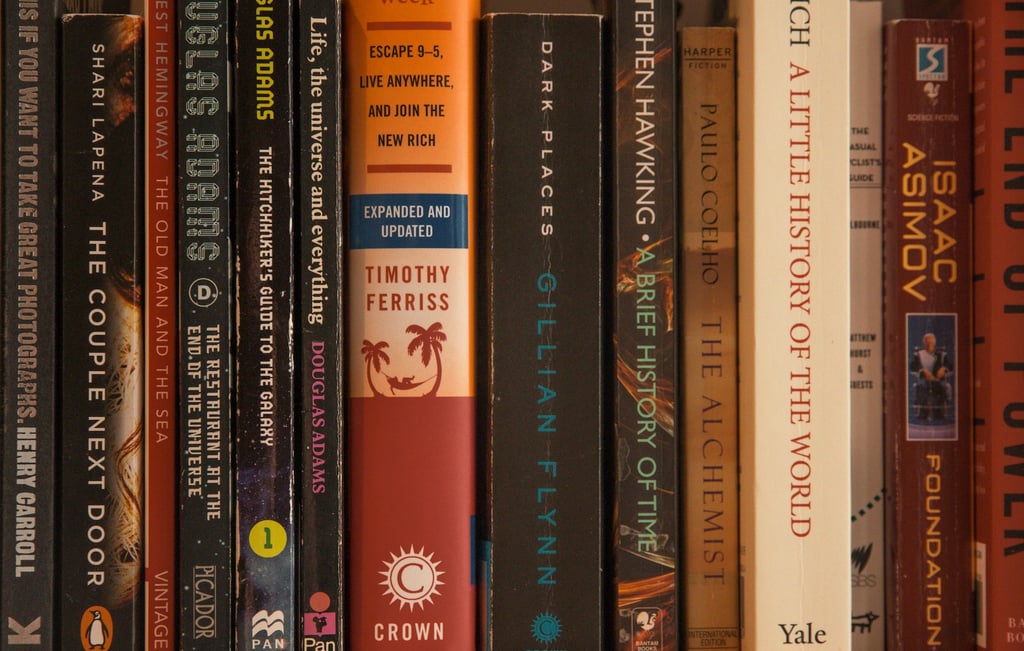How Reading Fiction Enhances Your Empathy: What Studies Show
9/17/2024


Have you ever found yourself deeply moved by a novel, feeling as though you could understand and relate to the characters as if they were real people? That’s not just good storytelling—it’s your brain actively becoming more empathetic. Reading fiction, especially literary fiction, has been shown to improve social understanding and empathy, helping readers connect with others on a deeper emotional level.
Let's explore how this works and look at studies that reveal the surprising power of fiction to shape our social minds.
1. What Is Empathy?


Empathy is the ability to understand and share the feelings of others. It's what allows us to step into someone else's shoes, feel their emotions, and imagine their experiences. Empathy is a key component of social interaction and emotional intelligence, enabling us to connect with people, offer support, and foster meaningful relationships.
But how can something as simple as reading fiction help develop this complex human trait?
2. Fiction as a Window into Other Lives
Fiction, particularly literary fiction, exposes us to different characters, cultures, and perspectives that we might not encounter in our day-to-day lives. Unlike nonfiction, which often presents facts and objective viewpoints, fiction allows readers to experience the inner thoughts and feelings of characters—essentially living their lives from the inside out.
When we immerse ourselves in a story, we don’t just observe a character’s actions; we understand their motivations, dilemmas, and emotional conflicts. This “practice” of relating to fictional characters builds our ability to empathize with real people.
Example:
Imagine reading a novel about someone from a completely different background or culture than your own. As you read, you experience their world, their struggles, and their joys, which gives you a better understanding of their emotional landscape. This builds your ability to relate to people from diverse walks of life.
3. What Does the Research Say?


Several studies have demonstrated that reading literary fiction can improve empathy and social understanding. Here are some key findings:
a. Study by Kidd and Castano (2013)
In one of the most notable studies, researchers David Kidd and Emanuele Castano found that reading literary fiction improved participants' ability to understand others' mental states, a skill known as “theory of mind.”
Theory of mind is essential for empathy because it allows us to recognize that others have thoughts, feelings, and perspectives different from our own. In the study, participants who read literary fiction performed better on tasks that measured their ability to infer the emotions and thoughts of others compared to those who read nonfiction or popular fiction.
Why Literary Fiction?
The key to this improvement lies in the complexity of literary fiction. Unlike genre fiction or nonfiction, which often presents clear-cut characters and straightforward plots, literary fiction introduces more nuanced, ambiguous characters with complex emotions. This challenges readers to engage more deeply and interpret the subtleties of human behavior.
b. Study by Oatley and Mar (2006)
Another influential study by Keith Oatley and Raymond Mar suggested that people who regularly read fiction are better able to understand social situations and navigate interpersonal relationships. The study found that fiction readers scored higher on empathy tests and were better at reading facial expressions and emotions.
Conclusion of the Study:
Fiction acts as a kind of simulation of real-life social experiences. As readers follow the emotional arcs of characters, they gain practice in understanding emotional nuances, which transfers to real-world interactions.
4. How Fiction Changes Your Brain


Reading fiction doesn’t just change the way you think—it can change the structure of your brain. Neuroscientists have found that when we read about an experience, the same brain regions are activated as when we actually experience that event.
a. Neural Activity:
In a 2013 study led by neuroscientists at Emory University, participants who read a novel showed heightened brain connectivity, particularly in the regions associated with language comprehension and sensory experience. This suggests that fiction engages multiple areas of the brain, allowing us to “live” the story on a cognitive level.
b. Mirror Neurons and Empathy:
One fascinating explanation for the connection between reading and empathy involves mirror neurons—neurons that fire both when we perform an action and when we observe someone else performing the same action. When we read about a character’s struggles or triumphs, our mirror neurons simulate the experience, allowing us to feel what they feel. This enhances our capacity for empathy by making fictional experiences feel real.
5. Why Literary Fiction Stands Out
Not all fiction has the same effect on empathy. While all stories involve characters and emotions, literary fiction tends to focus more on character development, inner conflict, and subtle emotional shifts than genre fiction (e.g., thrillers, romances).
a. Complex Characters and Situations:
In literary fiction, characters are often morally ambiguous, flawed, or placed in difficult social situations. There are no clear heroes or villains, which mirrors the complexity of real-life human interactions. This forces readers to put themselves in the shoes of characters with whom they might not initially identify, stretching their empathetic muscles.
b. Exploration of Human Experience:
Literary fiction often explores deeper themes of love, loss, identity, and morality. As we engage with these themes through the lens of diverse characters, we come to understand more about the human condition and our own emotions.
6. Fiction as Empathy Training


Think of reading fiction as a form of empathy training. Just as we can strengthen our muscles through regular exercise, we can cultivate our empathy by regularly engaging with complex stories. Fiction gives us the opportunity to step outside of our own experience and into someone else’s—time and time again.
a. Practical Benefits of Enhanced Empathy:
Better Relationships: When you’re able to understand others’ perspectives, you’re more likely to resolve conflicts and communicate effectively.
Improved Communication: Fiction teaches you to recognize and respond to subtle social cues, making interactions smoother.
Increased Compassion: Fiction helps you see the world from multiple points of view, making you more open and compassionate in your day-to-day interactions.
Conclusion: Why You Should Make Time for Fiction
In a world where we often rush through interactions and focus on our own experiences, reading fiction offers a valuable opportunity to slow down and understand others. It’s more than just entertainment—it’s a way to expand your mind and grow your empathy.
So, the next time you reach for a book, consider diving into a literary novel. Not only will you enjoy a great story, but you’ll also be doing your brain—and your emotional intelligence—a favor.
